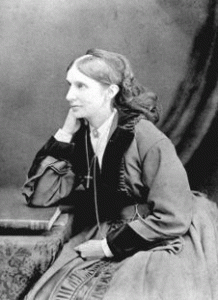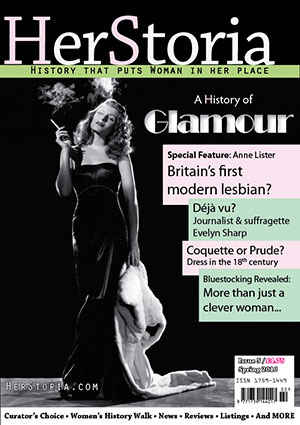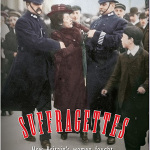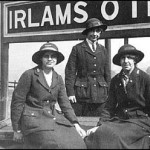Josephine Butler, 1828-1906
Table of Contents
Worker for poor women’s rights, advocate for prostitutes and campaigner against the Contagious Diseases Acts
Overview
Josephine Butler is remembered for her compassion for prostitutes and her tireless championing of poor women and children. Importantly, she is also remembered for her ultimately successful ‘crusade’ against the Contagious Diseases Acts of 1864, 1866 and 1869, which stripped poor women of their legal rights. Josephine’s analysis of Victorian women’s issues is breathtakingly modern and would not look outdated at the start of the twenty first century. She recognised the distorted and differing affects that the Contagious Disease Actshad on each sex (harming women and privileging men) and interpreted prostitution as ‘abuse’ or exploitation of one sex by another. Josephine fully recognised the Victorian sexual double standard and challenged men’s right to sexual access to prostituted women and children. She achieved major social and legal reforms, eventually getting the Contagious Diseases Acts repealed – all achieved at a time when women did not even have the right to vote.
Early life
Josephine Butler has been described by contemporaries and biographers as beautiful and charismatic. She was born Josephine Elizabeth Grey in Northumberland in 1828 to a wealthy and prominent family. Educated at home, she became acutely aware of injustices within society, in part through the influence of her father who campaigned against slavery. When Josephine married George Butler in 1852, then a tutor at Oxford, she found a partner who shared her concern for fairness and social reform.
Living first at Oxford, then at Cheltenham College, the Butlers had four children, the youngest of whom, Eva, died at the age of six after falling from the banisters at the top of their stairs. Josephine was traumatised by this and it was in the wake of this tragedy that she turned to caring for and campaigning on behalf of prostitutes.
The family moved to Liverpool in 1866 when George, who was by then ordained in the Church of England, was invited to become the new headmaster of Liverpool College. Still suffering from grief and depression, Josephine threw herself into working with vulnerable women, hoping to ‘find some pain keener than my own – to meet with people more unhappy than myself’. She began visiting the Brownlow Hill Workhouse (vastly expanding because of the cotton famine) rescuing many young girls and either finding them homes or taking them into her own household. Josephine also worked to set up her own refuge and workshop (making envelopes) where the women could earn money enough to support themselves.
Women and access to higher education
George Butler held progressive ideas and gave active support to the controversial movement for the education of women. It was to him that Anne Jemima Clough (later to become the first head of Newnham College, one of the first colleges for women at Cambridge University) went in 1867 for support when she launched her campaign for higher education for women in Liverpool. Josephine was persuaded to head the committee (The North of England Council for the Higher Education of Women) and she and her husband were active a pioneering scheme of adult education lectures which contributed to the eventual founding of the University in Liverpool. Her involvement in this cause included the editing of a book published in 1869, An Introduction to Woman’s Work and Culture, in which she questioned why it is preached that women’s ‘natural role’ is only wifehood and motherhood. Where, she asked, did that leave the two and a half million single women for whom there were not enough husbands to go around? What happened to unmarried women who were not, according to the genteel codes of Victorian society, supposed to support themselves?
Contagious Diseases Acts
In 1870 Josephine became leader of the Ladies National Association for the Repeal of the Contagious Diseases Acts. Passed in 1864, 1866 and 1869, these Acts targeted women suspected of being prostitutes and, in an attempt to halt the spread of venereal disease amongst the Navy and Armed Forces, forcibly inspected them internally, on a regular basis, to find any hint of contagion. Women were then given a certificate to prove they were free of disease, or incarcerated in a secure lock hospital for 6-9 months until ‘clean’. Men were not examined. Josephine immediately understood the Acts’ implications and was appalled, believing that they embodied the Victorian sexual double standard.
The Acts were administered by groups of plain clothed policemen (who became known as the ‘spy police’) whose job was to keep women in their area under surveillance. They harassed prostitutes and working-class women, many of whom were vulnerable and illiterate, with no knowledge of their legal rights; the definition of ‘common prostitute’ was vague and this gave the police real power. The female body, not the men they serviced, was identified as the primary source of disease and prostitution. As men were not examined but left to spread any disease they carried, the Acts were futile in preventing the spread of contagion.
Women who refused to be examined could be imprisoned as well as infected women. In brothels (which Josephine visited) women had to have tickets with their number, signed by the examining surgeon, showing they were free of disease, which they then showed to the soldiers/punters. Josephine was told by a prostitute in Canterbury, who had chosen to go to prison rather than submit to the examination, that it was unfair because the magistrate who committed her to prison had paid her several shillings to go with him a few days before. Josephine discovered that this was not an isolated case.
Josephine had been rescuing prostitutes in Liverpool, but involvement in something as major and ‘unsavoury’ as the Contagious Diseases Acts threatened her and her family’s respectability, so it is understandable that she hesitated for a few months before taking it on. Her husband supported her, but they both knew that the ‘indelicacy’ of the subject may have serious consequences for their social standing, and may even threaten George’s role as headmaster. They both needed immense courage, and they did suffer some social ostracism. For example, one MP on the floor of the House of Commons referred to Josephine as ‘a woman who calls herself a lady’, another opined ‘I look upon these women who have taken up this matter as worse than the prostitutes’.
To accept leading the campaign for repeal would involve a total break with feminine convention. To mount platforms, to speak at public meetings (and on a subject of such a sexual nature) was not what was expected of respectable female philanthropy. This was men’s work, deemed improper for a woman.
The campaign for repeal
The campaign against the Acts lasted some sixteen years. A fund was set up to provide legal representation for women and to look after the children of women locked away. Josephine began holding public meetings to address working class men. She explained the moral and legal effects of the Acts on poor women to their male partners, many of whom had just been given the vote under the 1867 Reform Act. She likened women’s position under the Contagious Diseases Acts to slavery and described the campaign for their repeal as like that of the Abolitionist movement.
Jane Jordan, in her biography of Butler, quotes from a speech Josephine made to men in Manchester, in which she said that women turned to prostitution out of:
…. starvation hunger. Two pence, gentlemen, is the price in England of a poor girl’s honour (yet with the CDA these girls) are to be no longer women, but only bits of numbered, inspected, and ticketed human flesh, flung by government into the public market.
Josephine and the Ladies National Association argued for repeal of the Acts from several standpoints:
- A moral argument, the law was treating women with severity while allowing men to sin with impunity
- The Government was waging an unequal war on the weaker sex only
- The Acts persecuted working class women, limiting their freedom of movement (if you could afford to travel in a carriage at night you were safe from suspicion)
- Women’s rights were being taken away to create a sub-class without rights.
- The Act did not define ‘common prostitute’: any woman could be suspected, and no difference was made between an unchaste woman and a criminal
- Women were presumed guilty until proved innocent
- The political liberty of the whole nation ‘depends on the preservation of the rights of all’.
The sexual double standard embodied in the Acts was abhorrent to Josephine. It seemed the State regarded prostitution as a necessity yet condoned male vice. Only women were forced to undergo the degrading examination, and only women were denied their civil rights until they were proved to be free from disease. She refused to countenance what she saw as an assumption that God had created a class of women solely for the use of profligate men – or that working-class women were created to minister to the sexual needs of gentlemen. Josephine outlined these arguments in a book published in 1871 titled The Constitution Violated.
Legacy
The Contagious Diseases Acts were suspended in 1883 and repealed in 1886. After getting the Acts repealed, Josephine continued the campaign in India where women were being virtually forced into prostitution by the British Army.
The debate continued however, but moved to campaign against ‘rampant’ male sexuality and to promote male chastity. The National Vigilance Association was founded in 1885 which encouraged repressive action against prostitutes by police and vigilante groups. Campaigner Elice Hopkins set up the White Cross Army, with branches throughout the UK, to recruit men to the cause of purity. These organisations comprised part of what came to be called the Social Purity Movement. This was a loose-knit coalition of early feminists and social reformers which set as its goal the containing of male lust and male ‘sexual incontinence’ in all its forms, from adultery through to prostitution and pornography.
Josephine and George moved to Winchester in 1882 where he took up a canonry at the Cathedral. Josephine soon opened up a new House of Rest for women who temporarily needed care and shelter, and continued her campaigning work. In March 1890 George died and Josephine, in poor health, settled in London, but continued to campaign on behalf of prostitutes in Europe and India. She died in 1906 and is buried in a village in Northumbria. An obituary in The Times described her as ‘an almost ideal woman; a devoted wife, exquisitely human and feminine, with no touch in her of the “woman of the platform” though with a great gift of pleading speech, with a powerful mind, and a soul purged through fire’.
Josephine Butler is pictured on a stained glass window in the Lady Chapel at the Anglican Cathedral in Liverpool. This window was consecrated in 1910 and depicts ‘Noble Women’; alongside Josephine are Queen Victoria, Elizabeth Fry, Annie Jemima Clough and others.
References and further reading
Jane Jordan, Josephine Butler![]()
Nancy Boyd, Josephine butler, Octavia Hill and Florence Nightingale: Three Victorian women who changed their world (Macmillan, 1982)![]()
Helen Mathers, Patron Saint of Prostitutes: Josephine Butler and a Victorian Scandal











[…] http://herstoria.com/?p=450 accessed 15/12/2015 […]
An excellent contemporary record of Butler’s endeavors, and those of the National Anti-Contagious Diseases Acts Association is the weekly, THE SHIELD, its first issue published 7 March 1870.
In the second issue is the full text of “THE LADIES’ APPEAL AND PROTEST,” signed in type by several hundred women. Of these, the first two named are Harriet Martineau and Florence Nightingale. Several names further along the list of signatories is Josephine Butler.